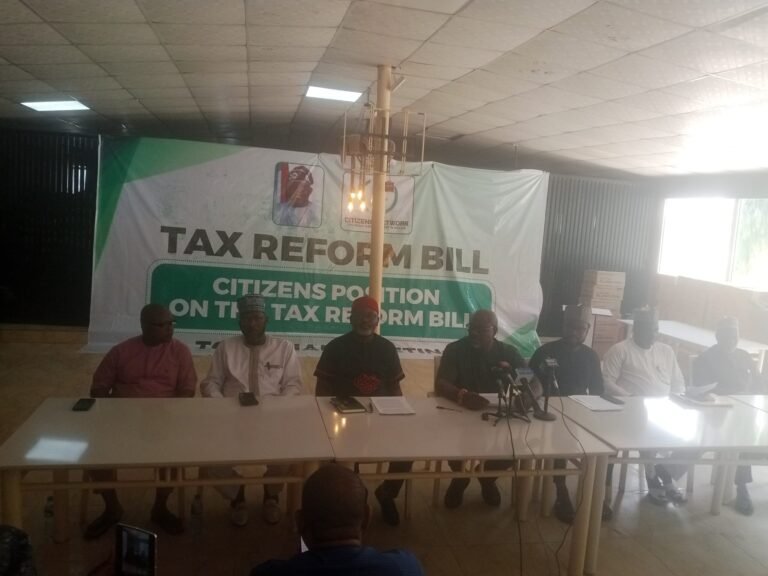A group, Citizens Network for Peace and Development in Nigeria has rejected the Nigeria Governors Forum’s proposed Value Added Tax (VAT) sharing formula, which allocates 50 per cent based on equity, 30 percent based on derivation, and 20 per cent based on population.
TheHintsNews reports President Bola Tinibu had proposed the laws aimed at bringing all tax laws into one while harmonising all the taxes that have stunted the growth of the nation’s economy, among others.
Despite the proposed reforms, theaw encountered stiff opposition from the governors, before it subsequently endorsed a revised VAT sharing formula to ensure equitable distribution of resources.
However, the group in a communique jointly signed by its National Coordinator, Raphael Okorie, Hon. Chijioke Nwachukwu, among others, said the formulae proposed by the governors did not take into account productivity and economic growth, which are critical factors in determining a state’s contribution to the national economy.
Okorie who read the communique on behalf of the group said by shielding low-income earners and small businesses from the tax burden, the Bill will undoubtedly stimulate economic growth, create jobs, and improve living standards.
He added that given its pro-poor orientation, the group called for accelerated passage of the Tax Reform Bill to ensure its timely implementation and realisaation of its benefits for the most vulnerable segments of the society.
Okorie stated: “We categorically reject the Nigeria Governors Forum’s proposed VAT sharing formula, which allocates 50 per cent based on equity, 30 percent cent based on derivation, and 20 per cent based on population.
“This formula does not take into account productivity and economic growth, which are critical factors in determining a state’s contribution to the national economy.
“By ignoring productivity, this formula may inadvertently penalise states that are making concerted efforts to diversify their economies and promote economic growth.
“We urge the National Assembly to reconsider this proposal and adopt a more nuanced approach that rewards productivity and economic growth.”
The group note that when enacted into law, The Tax Reform legislation, would provide opportunity for a fairer redistribution of wealth, allowing the government to prioritise the needs of the underprivileged.
It stressed that the bills would reduce the tax burden on the poor and ensure that funds are available for public services that benefit marginalized communities.
It pointed out that the bills are designed to ensure that high-income earners and large corporations contribute proportionally to national development.
It said there is no gainsaying the fact that this Bill has the potential to ensure that revenues derived from taxes are channeled into critical sectors such as education, healthcare, and rural development, thereby reducing poverty and inequality.
It emphasised that the proposed law focuses on inclusive taxation and also aimed at stimulating small and medium-scale enterprises (SMEs), encouraging grassroots entrepreneurship, and fostering economic diversification, as well as sustainable growth for the future generations.

